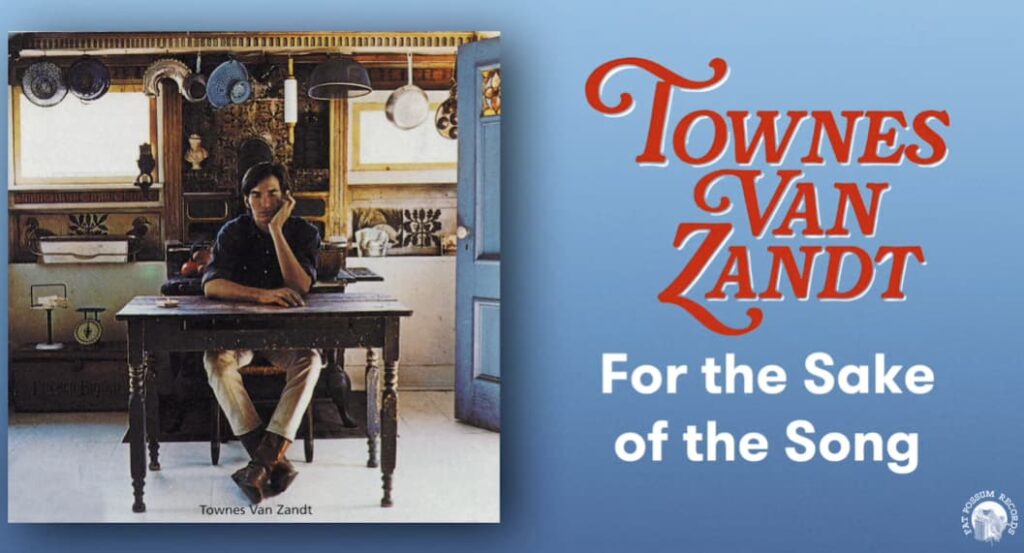
A weary heart confesses its truth in a song that sounds like a farewell whispered from the edge of a dimly lit room.
When Townes Van Zandt released “For the Sake of the Song” on his 1968 debut album For the Sake of the Song, the track did not enter the commercial charts nor find the radio favor granted to more polished contemporaries. Yet its absence from the rankings only underscores the truth about Townes: he was never an artist built for the machinery of singles and measurable triumphs. His legacy, instead, rests in the quiet endurance of songs that feel discovered rather than delivered—songs that live in the blood of folk tradition, traveling privately through hearts before ever arriving in public memory.
“For the Sake of the Song” is one of his earliest declarations of that vocation. Its very structure, both cyclical and unraveling, reveals a young songwriter already wrestling with the cost of truth-telling. The song unfolds like a confessional letter written in the hours before dawn—when the mind is undecorated, when the soul is most honest, and when the wounds beneath love’s failures pulse with a clarity that daylight tends to dilute. Townes sings not simply of heartbreak but of the uneasy dance between devotion and self-destruction, a theme that would haunt his work for decades. The title itself suggests a resignation to the act of creation, as though the narrator has accepted that love may falter, people may leave, and life may grow hard—but the song must still be born.
Lyrically, the piece is a meditation on emotional asymmetry. The narrator clings to someone who offers only fragments in return; the relationship is a house built on shifting sands, but Townes renders its instability with an almost devotional tenderness. His images—restless rooms, unspoken promises, the fleeting warmth of presence—betray a man caught between desire and foreknowledge. He knows the love is untenable, yet he refuses to look away. The song becomes a study in the kind of longing that hurts precisely because it is half-fulfilled, because its beauty is inseparable from its incompleteness.
Musically, the composition carries Townes’ signature: sparse, deliberate, unhurried. The melody circles the lyrical motifs like a lantern swinging in the dark, illuminating one painful truth at a time. Even in its earliest incarnation, you can hear his instinct for restraint. Nothing here is ornamental. Every chord feels weighted with the heaviness of what cannot be said outright. It is a song as much about silence as sound.
Over time, “For the Sake of the Song” has become something of a thesis statement for Townes Van Zandt’s body of work. It encapsulates his haunted romanticism, his unflinching gaze into the fragile spaces of the human heart, and his belief that sometimes the only way to survive sorrow is to translate it into music. This song is not a plea, nor an explanation—it is an offering. A truth laid bare, carried forward because, in Townes’ world, the telling of the story is itself an act of mercy.